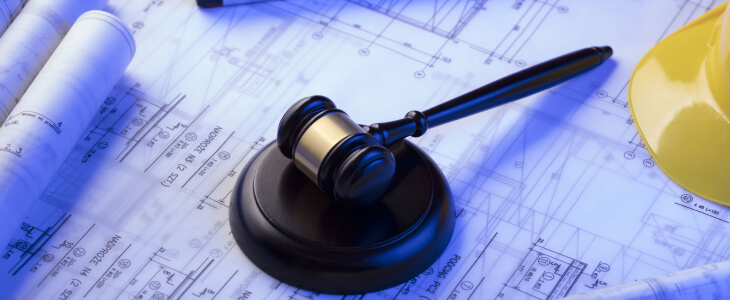The construction industry has been booming here in Texas. New homes and office buildings have been going up like mushrooms after a rainstorm. Unfortunately, some construction projects don’t work out as planned, leading to disputes between builders and clients. When this happens, you will be faced with deciding how to resolve the dispute.
If you are unable to resolve it in an amicable fashion, then you and your construction lawyer will be faced with having to decide between arbitration and litigation to solve the problem.
What is litigation and arbitration?
- Litigation – the use of the various courts in the State of Texas. This is a very formal process, governed by laws, rules, and statutes, including those related to evidence and procedure. A district or county court judge will preside over the litigation, and, depending on the construction contract’s terms, a decision will be made by the judge or jury.
- Arbitration – a completely private form of dispute resolution. Under arbitration, the parties agree to have their case heard by a neutral third party. While many arbitrators are retired judges, this is not always the case. Sometimes, the parties will have a panel of three arbitrators with each side choosing one arbitrator, and then the two picking a third. Just like litigation, there will be a discovery period where each side finds out evidence from the other. However, the procedure is more informal, and the arbitrator will act as judge and jury on the case.
In some situations, you may have no choice but to use arbitration. If your construction contract contains a prescriptive arbitration clause, the court will require that your dispute be resolved by arbitration.
What are the benefits of arbitration?
In general, most attorneys have found arbitration to be speedier than litigation. When you are before a judge, he or she will have a full docket of cases, which can result in delays often up to years. With arbitration, the arbitrator will usually have fewer cases he or she is handling, so the timeline is a lot faster. When you are dealing with construction matters, time can often be of the essence, which is why so many construction attorneys advise using arbitration.
You also get to choose your arbitrator. Whether you go with a single arbitrator or a three-person panel, you will have input on who will be hearing your case. In many situations, the attorney for the builder and the one for the client will prepare a list of ten names of arbitrators with particular expertise in construction. They will then choose the one who appears at or near the top of both lists. This can increase the chances of getting someone who is impartial and well-versed in the matter. In contrast, when you go with litigation, you will be assigned a judge who may have no real experience dealing with your type of dispute.
The speed of arbitration can also make it less costly than litigation. While typically the parties to an arbitration will either split the cost of the arbitrator or have the fee paid by the loser, this will often be significantly less than paying your attorney to keep showing up to court for frequent and annoying case management and calendar calls.
Confidentiality and Predictability: The Benefits
Two other reasons to choose arbitration are confidentiality and predictability. Litigation is a public matter, and unless you can get a judge to seal certain evidence, any member of the public can learn about your dispute.
Arbitrations are held in private. Similarly, because you are choosing an arbitrator who is well-versed in construction, it is more likely that you will know the outcome ahead of time. Elected judges and appointed juries often make rulings that are seemingly irrational. You can avoid this potential problem with arbitration.
What are the problems with arbitration?
The biggest problem with arbitration is finality. If you get a decision you don’t like, you have very few grounds to attack the judgment. This is why arbitration is often called binding. The parties have agreed to be bound by the arbitrator’s decision. In litigation, if you are unhappy with the result, you can appeal the court’s decision to the court of appeals with jurisdiction over the court where your case was heard. This is not the situation with arbitration, where the losing party to be able to appeal must show actual prejudice or corruption on the part of the arbitrator or that the arbitrator exceeded authority.
Arbitrators are not bound by the same rules of procedure and evidence as judges in litigation. As a result, an arbitrator may allow things into evidence that would be prohibited by a judge. This can lead to arbitration decisions based on unfavorable evidence that never would have been the basis of a court’s ruling.
Winning at arbitration may not fully end the dispute. Judges have the power to issue orders that can compel actions by parties, as well as direct law enforcement to take certain actions. This can relate to collection of monies, injunctions against certain actions, and specific performance compelling others to act. An arbitrator does not have this authority. Therefore, if you win the arbitration and the other party ignores the decision, you will have to go to court to enforce the arbitration award. This will increase your costs, as well as the time you will have to take to resolve the matter. This is especially problematic with construction disputes.
If you are involved in a construction dispute, call our firm today
Whether you are a builder, contractor, developer or homeowner, you may find yourself involved in a construction dispute. Ryan G. Cole Law, PLLC, can assist you with your matter, regardless of whether you are contemplating litigation or arbitration. We will fight hard to get you the result you desire. Contact us today.


